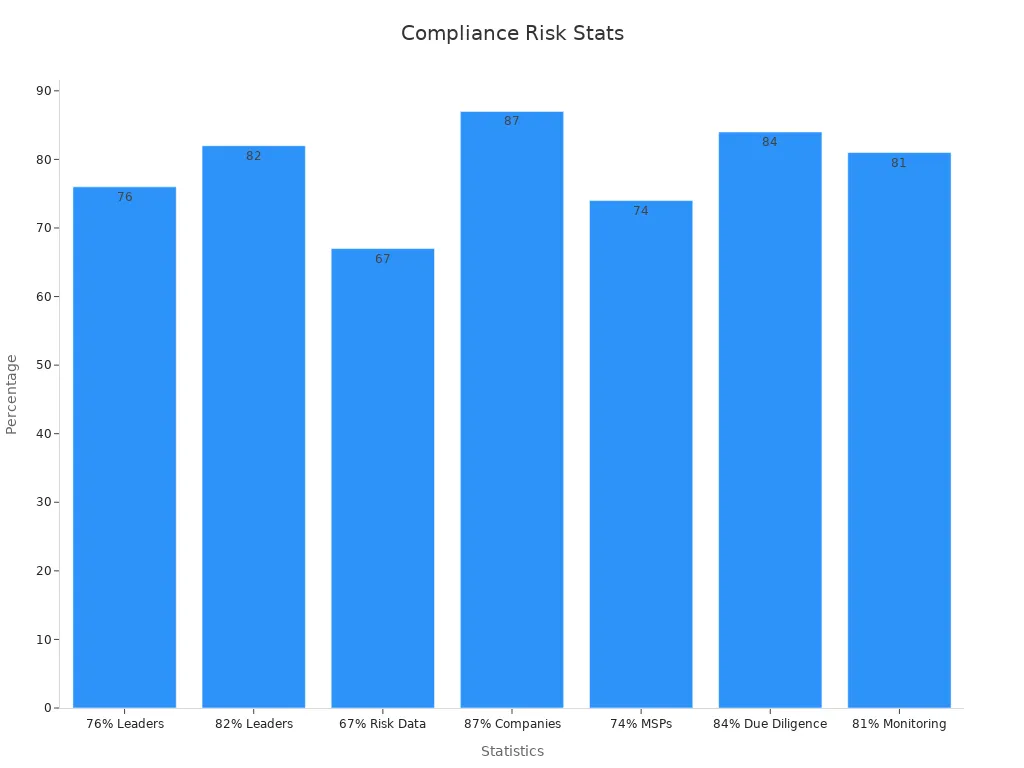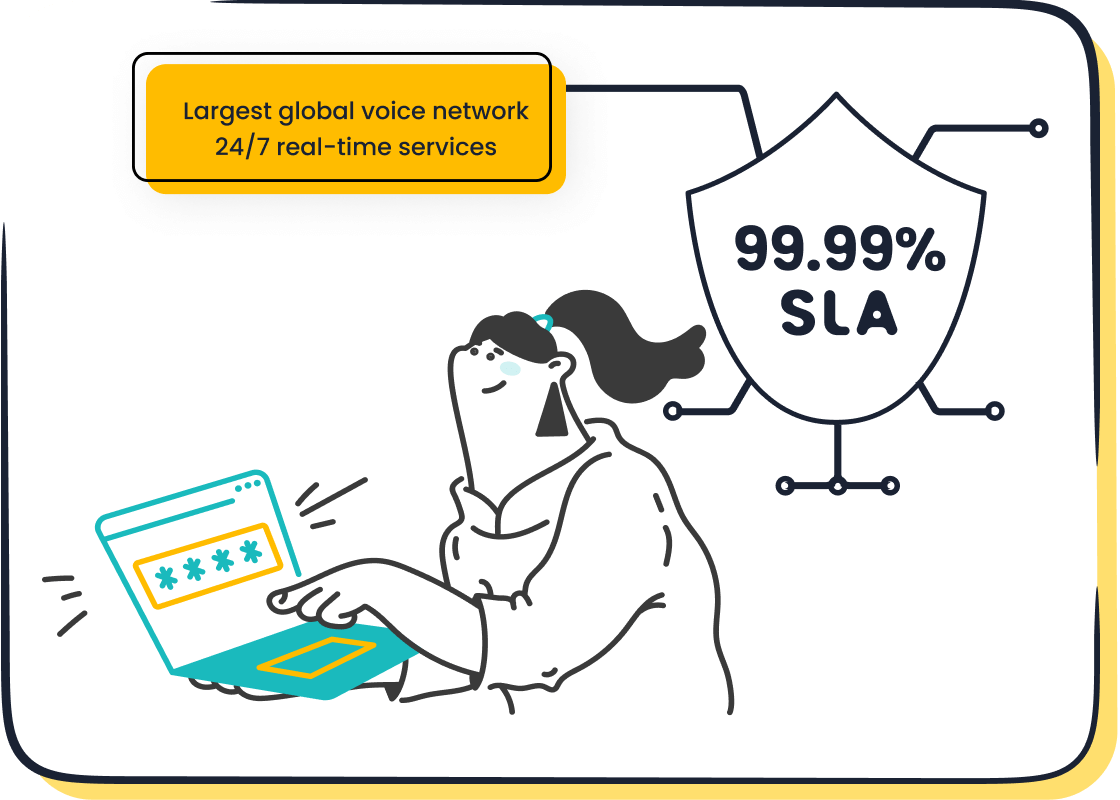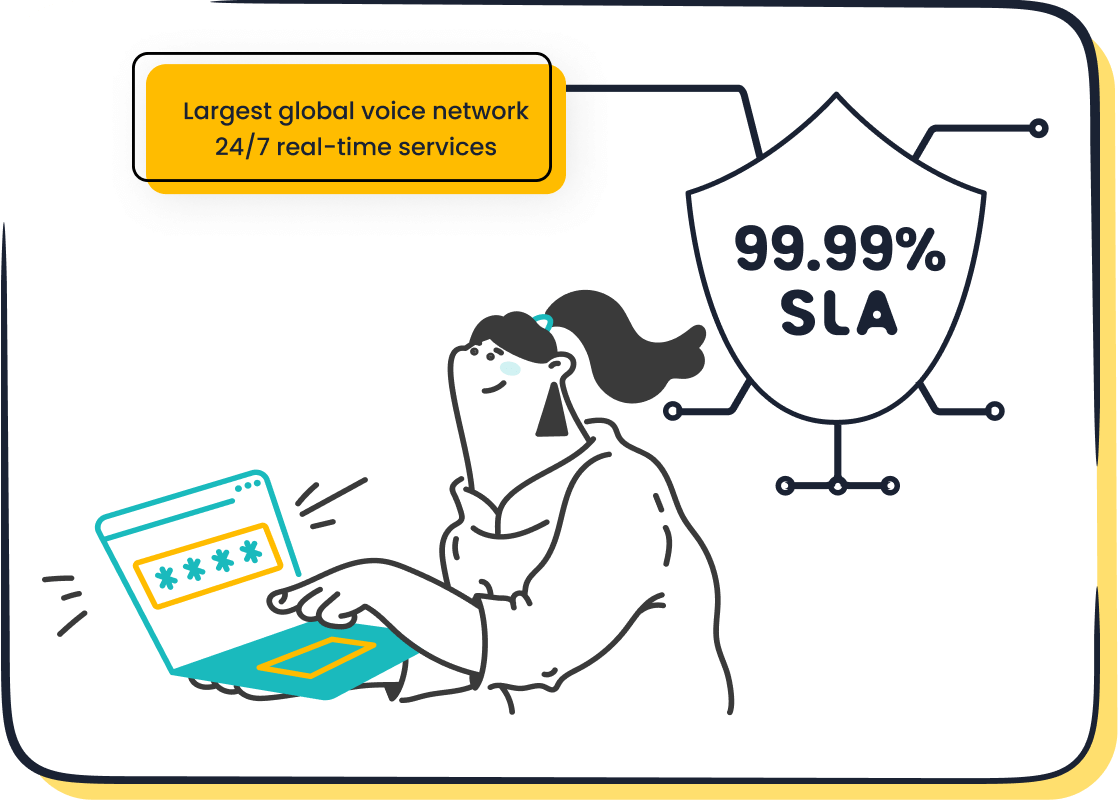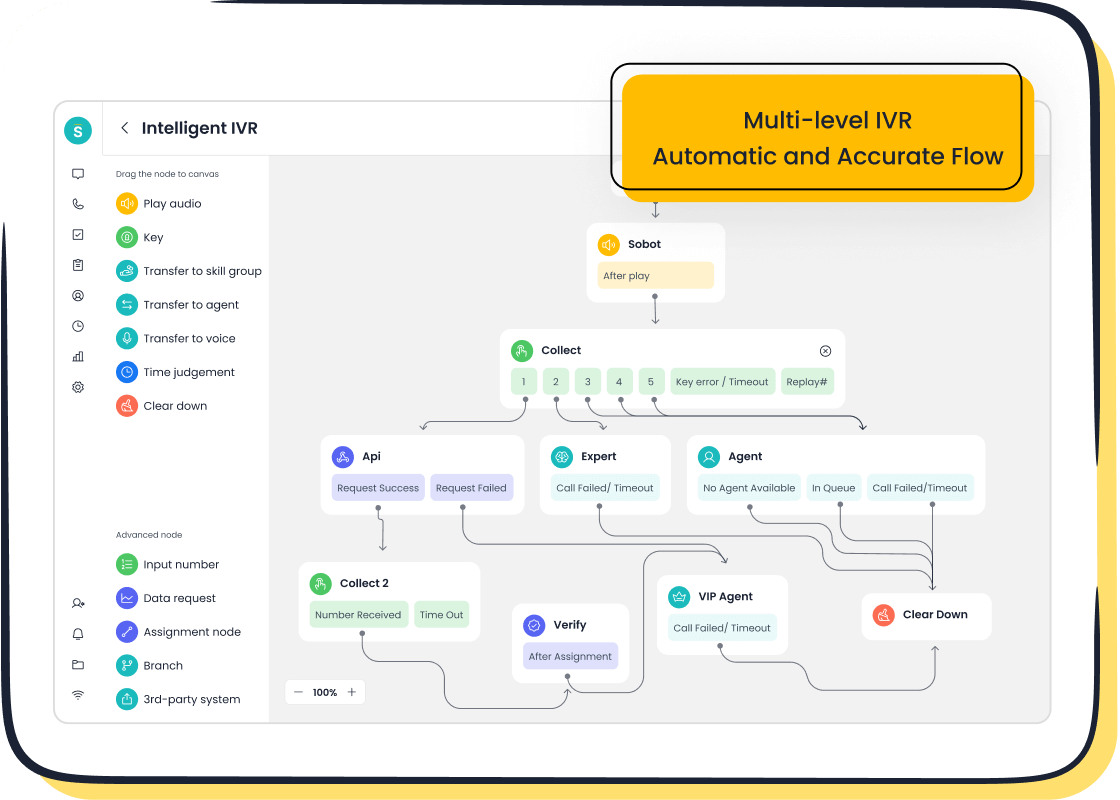How to Overcome Call Center Compliance Definition Issues

Many call center leaders struggle to define call center compliance clearly. This confusion often leads to missed expectations and costly non-compliance penalties. In 2023, regulatory fines for call center violations reached millions of dollars worldwide, showing the severe consequences of non-compliance. Organizations face challenges meeting call center compliance due to changing laws and strict security needs. Non-compliance penalties can include legal action, loss of licenses, and damaged reputations. Call center compliance definition sets the standards for how agents handle customer data and follow rules. Sobot and Sobot AI help call center teams meet expectations and reduce the risk of non-compliance penalties. Every call center should review its compliance approach and understand the consequences of non-compliance.
Call Center Compliance Definition
What It Means
The call center compliance definition refers to the strict adherence to laws, regulations, and industry standards that govern how call centers operate. These rules protect customer data, ensure fair practices, and maintain high service quality. Regulatory compliance covers a wide range of requirements, including data privacy, call recording, consent management, and secure handling of sensitive information. For example, regulations such as TCPA, HIPAA, PCI DSS, and GDPR set clear expectations for how call centers must manage customer interactions and data.
A compliant call center must:
- Encrypt sensitive financial data, following rules like NACHA, to protect bank account and routing numbers.
- Meet client-specific obligations, such as live call answering or union rules.
- Use clear disclosures in outbound scripts for telemarketing compliance.
- Monitor agents for TCPA compliance, including notifying all parties when recording calls.
- Conduct routine audits to verify alignment with regulations.
- Provide ongoing training for agents on evolving laws, such as the Dodd-Frank Act and Sarbanes-Oxley Act.
- Enforce strict controls and encryption for HIPAA compliance in medical call centers.
- Manage third-party risks, as outsourcing can increase cybersecurity threats.
Note: DialAmerica Healthcare Solutions, for example, prohibits employees from using outside technology during calls and uses data encryption to protect information. This approach highlights the critical elements of call center compliance.
Sobot’s all-in-one contact center solutions help organizations meet these requirements by offering secure data handling, real-time monitoring, and automated compliance features. These tools support call centers in maintaining regulatory compliance and meeting customer expectations.
Why It Matters
Clear call center compliance definition is essential for operational efficiency, legal protection, and customer trust. Without well-defined compliance standards, call centers face increased risks of fines, lawsuits, and reputational harm. The following table shows how unclear compliance standards impact organizations:
| Statistic | Description |
|---|---|
| 76% of compliance leaders | Rank third-party risk management as a top priority. |
| 82% of compliance leaders | Experienced issues related to third-party risk in the past year. |
| 67% of compliance leaders | Focus on improving risk detection data quality. |
| 87% of companies | With reactive compliance approaches face negative consequences. |
| 74% of MSPs | Report clients struggle with regulatory compliance. |
| 84% of leaders | Strengthen due diligence for third-party risk. |
| 81% of leaders | Increase ongoing monitoring of third-party relationships. |

Call center compliance supports:
- Legal operation and customer trust, especially in regulated industries like healthcare and finance.
- Reduced risks of fines, legal action, and reputational damage.
- Improved service quality and workforce productivity through quality assurance and agent monitoring.
- Fewer operational interruptions by ensuring ongoing training, audits, and policy updates.
- Enhanced efficiency with AI-powered analytics and automation, as seen in Sobot’s solutions.
Call center compliance definition also protects organizations from costly penalties and operational disruptions. For example, regular audits and training help agents follow protocols, reducing the risk of violations. Using compliant software, such as Sobot’s Voice/Call Center, ensures call centers meet regulatory compliance and customer expectations every day.
Common Challenges

Regulatory Complexity
Call center compliance often faces regulatory complexity as one of the most significant challenges. Organizations must follow many overlapping and sometimes conflicting regulations, such as GDPR, HIPAA, PCI DSS, and TCPA. These rules require strict data protection, customer privacy, and security protocols. Regulatory compliance demands advanced systems for automated monitoring, real-time alerts, and centralized policy management. Manual processes can lead to errors and inefficiencies, increasing compliance issues and operational risks. For example, poor compliance records can limit a call center’s ability to expand or merge with other businesses. Sobot’s unified platform helps call centers manage these challenges by automating compliance tasks and providing real-time monitoring, reducing the risk of common compliance pitfalls.
Keeping up with evolving regulations, such as the 2025 TCPA autodialer rules, requires continuous updates to compliance programs and documentation.
Data Privacy Issues
Data privacy remains a top concern for call center compliance. Call centers handle large volumes of sensitive customer data, making data security measures essential. Data breaches and cyber threats can result in severe financial penalties and loss of customer trust. According to Cisco, 94% of organizations report that customers would not buy from them if data is not properly protected. Call centers must comply with data privacy laws like GDPR and PCI DSS, which govern how customer data is stored, accessed, and deleted. Only 20% of privacy professionals feel fully confident in their organization’s compliance with data privacy laws. Sobot’s solutions support data protection by encrypting sensitive customer data and enabling secure data handling across all channels.
- 71% of consumers would stop doing business with a company that mishandles sensitive customer data (McKinsey).
- Large organizations budget over $2.5 million annually for privacy by 2024 (Gartner).
Training and Turnover
Training and turnover present ongoing challenges for call center compliance. High turnover rates, often between 50-60%, strain resources and reduce agent proficiency. Burnout and poor training increase compliance risks, as new hires take about 90 days to reach full productivity. The table below highlights key factors:
| Factor | Impact on Compliance Challenges |
|---|---|
| High Turnover | Continuous recruitment and training cycles, increasing compliance risks |
| Burnout | Destabilizes operations and reduces compliance adherence |
| Poor Training | Increases compliance issues due to lack of knowledge |
| Ramp-up Time | Delays consistent compliance and service quality |
| Financial Cost | Limits resources for compliance and quality improvements |
Sobot’s AI-powered coaching and microlearning tools help stabilize the workforce, improve training, and support ongoing compliance efforts.
Sobot’s Approach to Compliance
Unified Solutions
Sobot delivers unified solutions that help call centers achieve strong call center compliance. These solutions monitor 100% of calls, chats, and emails in real time. Automated systems detect compliance violations and send instant alerts, allowing teams to fix issues quickly. Real-time scoring and agent feedback improve performance and reduce mistakes. Sobot’s unified solutions use AI and Natural Language Processing to review every interaction, making compliance checks objective and transparent. This approach replaces old sample-based monitoring, which often misses problems. By automating compliance tasks, Sobot’s solutions reduce human error and speed up compliance processes by up to 95%. Companies report cost reductions of at least 70% compared to manual methods. Sobot’s unified solutions support over 99% policy compliance, showing high effectiveness and reliability.
Voice/Call Center Features

Sobot’s Voice/Call Center product offers features that support call center compliance and robust data security. The platform provides secure call recording, encryption, and access controls to protect sensitive information. AI-powered automation handles routine tasks, reducing human error and improving compliance. Speech analytics and conversation intelligence tools detect compliance risks in real time, enabling quick corrective action. The system integrates with CRM and ticketing platforms, ensuring secure data sharing and accurate records. Regular training and monitoring help agents follow compliance rules. Sobot’s Voice/Call Center supports global operations with multilingual templates and time zone settings, making it easier to serve diverse customers while maintaining security and compliance.
Customer Story: Weee!
Weee!, America’s largest online Asian supermarket, faced challenges with inflexible systems and language barriers in its call center. After adopting Sobot’s solutions, Weee! saw a 20% increase in agent efficiency and a 50% reduction in resolution time. The flexible IVR system and multilingual support helped agents serve customers across regions. Sobot’s integrated workbench unified all customer interactions, improving information flow and compliance. Weee! achieved a 96% customer satisfaction score, proving the value of Sobot’s solutions in meeting call center compliance and security needs.
Learn more about Weee!’s success with Sobot: Weee! Customer Story
Call Center Compliance Best Practices

Clear Policies
Clear policies form the foundation of call center compliance. Every call center should develop detailed guidelines that define customer data handling, information security, and compliance management. These policies must be accessible and communicated to all staff. Case studies show that clear, well-communicated policies lead to cost reduction, improved employee satisfaction, and operational efficiency. For example, a large financial services call center saved $2.1 million annually and reduced agent turnover by 18% after implementing phased policy changes and technology integration.
| Call Center Type | Policy Focus & Development | Key Impacts & Outcomes |
|---|---|---|
| Large Financial Services Call Center | Phased VTO pilot, technology integration, clear communication | $2.1M annual savings, 27% higher schedule satisfaction, 18% less turnover, improved service levels |
| E-commerce Customer Service Center | Flexible staffing, seasonal VTO components | 70% retention, 65% lower training costs, >85% customer satisfaction |
Best practices include phased implementation, fairness, and continuous measurement. Sobot’s unified workspace helps call centers document and communicate policies, supporting compliance management and data protection.
Ongoing Training
Ongoing training ensures that call center agents understand and follow compliance requirements. Regular training sessions keep staff updated on the latest regulations and best practices. ISO 9001 standards require organizations to maintain records of education and training to demonstrate competence. Call centers that document training efforts reduce liability and support audit readiness. Compliance training also improves workplace safety and risk management. Many call centers conduct annual training and certification to meet legal requirements. Sobot’s AI-powered coaching tools help call centers deliver targeted training, track progress, and maintain detailed records for compliance audits.
- Regular training fosters a culture of risk management.
- Documented training provides proof of compliance.
- Continuous learning adapts to evolving regulations.
Technology Integration
Technology integration plays a critical role in call center compliance best practices. AI compliance monitoring tools automate real-time tracking, speech analytics, and data-driven insights. These systems provide immediate feedback and alerts, reducing human error and enabling proactive compliance management. Platforms like Sobot’s Voice/Call Center offer secure call recording, encryption, and access controls to protect customer data. Real-time monitoring and automated compliance checks help call centers maintain high standards for data protection and security. AI-driven solutions analyze call transcripts and agent performance, ensuring regulatory adherence and improving oversight. Technology integration supports operational efficiency and strengthens compliance management.
Tip: Regular audits and vendor due diligence ensure that technology solutions meet compliance standards and receive timely updates.
Implementing Best Practices with Sobot
Step-by-Step Guide
Sobot enables call centers to implement best practices for call center compliance through a clear, actionable process. Teams start by assessing their current engagement landscape, identifying channels, customer journeys, and compliance pain points. Next, they define objectives and key performance indicators, such as resolution rate, first contact resolution, and customer satisfaction score. Sobot’s platform supports omnichannel integration, allowing call centers to select the right channels and use cases for AI-driven solutions. Building a solid data infrastructure is essential, focusing on integration, data quality, and privacy compliance with regulations like GDPR and CCPA. Sobot’s scalable AI tools facilitate machine learning-driven customer interactions. Teams conduct pilot tests, train AI with relevant data, and continuously monitor performance. This approach ensures that call center compliance best practices are embedded in daily operations.
Tip: Sobot’s AI-powered chatbots help identify and engage high-risk customers, reducing churn by up to 30% in just 30 days.
| Metric | Description / Example | Success Data / Benchmark |
|---|---|---|
| Retention Rate | Percentage of customers retained over time | Up to 90% with AI-powered solutions |
| Net Promoter Score (NPS) | Measures customer loyalty and advocacy | Linked to 20-30% revenue growth |
| Repeat Purchase Rate | Customers making repeat purchases | Sobot chatbots increased repeat purchases by 50% |
| Churn Reduction Rate | Reduction in customer churn | Sobot reduced churn by 25% in 3 months |
Monitoring and Audits
Regular monitoring and audits form the backbone of call center compliance. Sobot’s solutions provide real-time monitoring of 100% of calls, chats, and emails. Automated systems detect compliance violations and send instant alerts, allowing teams to address issues quickly. Reviewing recorded calls and documenting consumer consent support compliance with regulations such as TCPA. Maintaining detailed records protects the call center from legal risks and builds trust with customers. Sobot’s platform enables systematic call monitoring, immediate feedback to agents, and comprehensive documentation for audits. These practices ensure that call center compliance standards remain high and that organizations are always audit-ready.
- Systematic call monitoring identifies compliance issues efficiently.
- Real-time Do-Not-Call checking and consent management are built-in.
- Comprehensive records support regulatory audits and continuous improvement.
Continuous Improvement
Continuous improvement is vital for maintaining call center compliance. Sobot’s solutions use AI to collect and preprocess call data, train models, and refine compliance protocols. Ongoing feedback from compliance officers and real-world applications helps fine-tune both AI models and employee training. Sobot integrates these tools into daily workflows, enabling real-time monitoring and automated compliance evaluations. Collaborative training and peer learning sessions enhance team capability. Data-driven decision-making supports proactive compliance improvements and operational efficiency.
| Component | Description | Impact on Compliance Protocols |
|---|---|---|
| Call Recording & Redaction | Automated tools protect sensitive data | Minimizes compliance breaches |
| Feedback Loop | Targeted coaching based on call transcripts | Drives agent development |
| Multi-Channel Data Integration | Unified analysis across phone, email, chat, social media | Comprehensive compliance monitoring |
| Data-Driven Decisions | AI analytics extract insights for improvement | Supports proactive compliance enhancements |
Note: Sobot’s continuous improvement model helps call centers adapt to changing regulations and maintain high compliance standards.
A clear call center compliance definition protects organizations from non-compliance penalties and supports consistent operations. Companies that use best practices see fewer consequences of non-compliance, improved agent performance, and higher customer trust. Sobot’s integrated solutions help call centers reduce non-compliance penalties, automate monitoring, and deliver real-time insights. The table below shows how call center compliance benefits every layer of operations:
| Benefit Area | Example Impact |
|---|---|
| Audit Readiness | Fast, accurate compliance records |
| Customer Trust | Over 80% value data protection (source) |
| Operational Consistency | Standardized workflows reduce errors |
Every call center should review its compliance process and consider Sobot’s platform for better results. For more information, visit Sobot’s website or contact the team.
FAQ
What is the most common compliance issue in a call center?
Many call centers struggle with data privacy. According to Cisco, 94% of organizations say customers avoid companies that mishandle data. Sobot helps call centers protect sensitive information with encrypted data transfer and secure call recording.
How can a call center reduce compliance risks?
A call center can reduce risks by using automated monitoring, regular audits, and ongoing training. Sobot’s platform monitors 100% of calls and provides real-time alerts. This approach helps call centers catch issues early and maintain compliance with industry regulations.
Why does call center compliance matter for customer trust?
Customers trust call centers that protect their data and follow regulations. A call center with strong compliance avoids fines and builds loyalty. Sobot’s solutions help call centers achieve high customer satisfaction scores, as seen with Weee!’s 96% satisfaction rate.
How does Sobot support multilingual call center compliance?
Sobot offers multilingual templates and time zone support. These features help call centers serve diverse customers and meet compliance standards in different regions. For example, Weee! used Sobot to overcome language barriers and improve call center efficiency.
What steps should a call center take to prepare for an audit?
A call center should keep detailed records, monitor calls, and document agent training. Sobot’s unified workspace makes it easy to store and access compliance data. Regular audits help call centers stay ready for regulatory reviews and avoid penalties.
See Also
Effective Strategies For Managing Quality In Call Centers
Comprehensive Overview Of Quality Management Systems In Call Centers
Essential Insights Into Quality Assurance Tools For Call Centers
Step-By-Step Approach To Deploy Omnichannel Contact Center Systems
Best Contact Center Technologies Evaluated For The Year 2024
